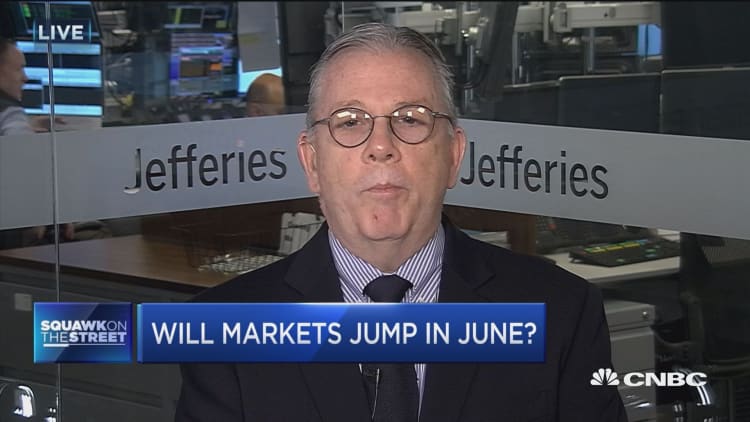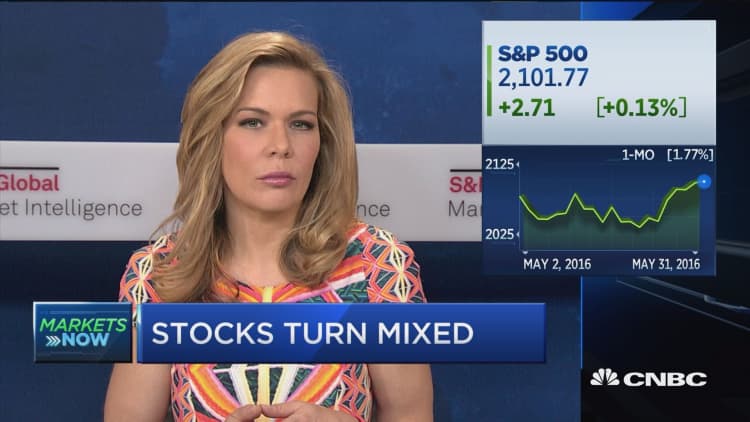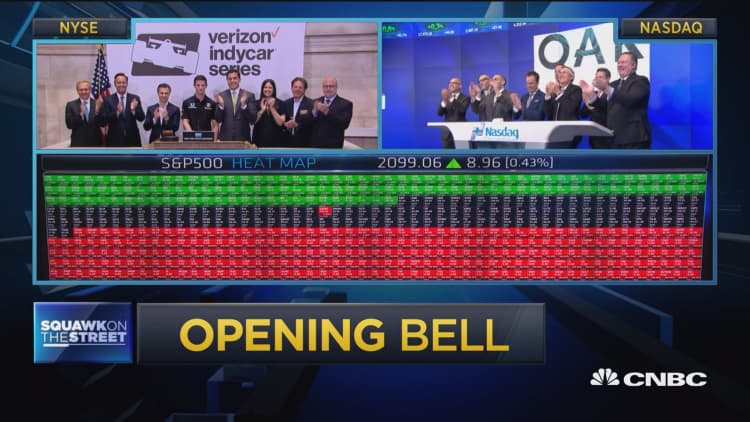


Traders have warmed up to the idea of a summer interest rate rise, and that's not necessarily a bad thing, experts told CNBC's "Squawk on the Street" on Tuesday.
"The negativity that we still see permeate the markets really is not warranted," said Ward McCarthy, chief financial economist at Jefferies & Co.
The Federal Reserve is mulling its next interest rate increase, after raising rates in December for the first time since 2006. The months after that hike have proved to be volatile, with Chinese financial markets tumbling amid tepid economic data.
Now there is a 58 percent chance that rates will increase again in July, according to CME Group's FedWatch tool.
But a summer rate hike doesn't mean that markets are set to rumble again, said Erin Gibbs, equity chief investment officer at Standard & Poors Investment Advisory Services, even as the S&P 500 cautiously hovers below 2,100 points.
"June tends to be a low-volatility month in any case," Gibbs said. "So even if there is a Fed hike in mid-June, we're still expecting just a low amount of volatility going in."
Indeed, depending on the circumstances, a Fed rate rise could be a positive event, said James Paulsen, chief investment strategist at Wells Capital Management.
"If they're going to lift rates because their view of the economy is improving, I think that will lead to greater confidence among investors and private economic players throughout the economy," Paulsen. "And I actually think it will be a healthy development. If we get to the point where the Fed has to lift rates because core inflation and wages are rising too fast, that could be a very damaging event for the financial markets."
Paulsen leans more toward the former scenario, since he believes corporate earnings are set to pick up. In particular, he has his eye on the housing sector.
"I look at the consumer sector, and the trifecta that's going right now — 3.25 [percent] mortgage rates, $2 gas here in Minnesota and almost 2 percent job creation," Paulsen said. "I think the housing sector, in some regards, is in better shape today than it's been in any point in this recovery. ... I think the risk of recession is still pretty low."
McCarthy, too, thinks that corporations will have more "top-line flexibility," even as markets weigh the risk that Britain might vote on June 23 to exit the European Union.
"It doesn't look like Brexit is going to be a major concern, so I think that again, unless something falls out of the sky, the Fed will raise rates," McCarthy.
Still, if equity markets were to "come unglued again" or the dollar were to "rocket" higher against other currencies, it could cause the Fed to pause, McCarthy said.
"Keep your eye on the currencies: The currencies have been most skeptical about what the Fed can do," Art Cashin, UBS director of floor operations at the NYSE, said on "Squawk on the Street." "Particularly the relationship with the Chinese currency. That was a factor when they raised in December; they had a little bit of a delayed response, and then you got a movement in the Chinese currency and we ended up with January and February."




